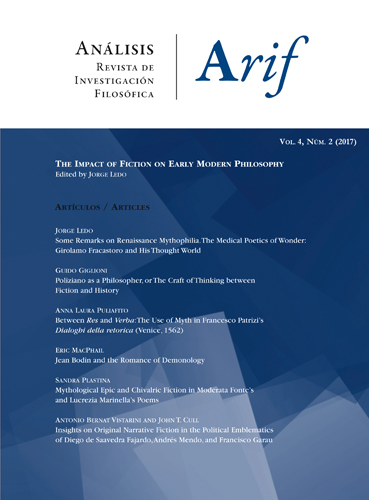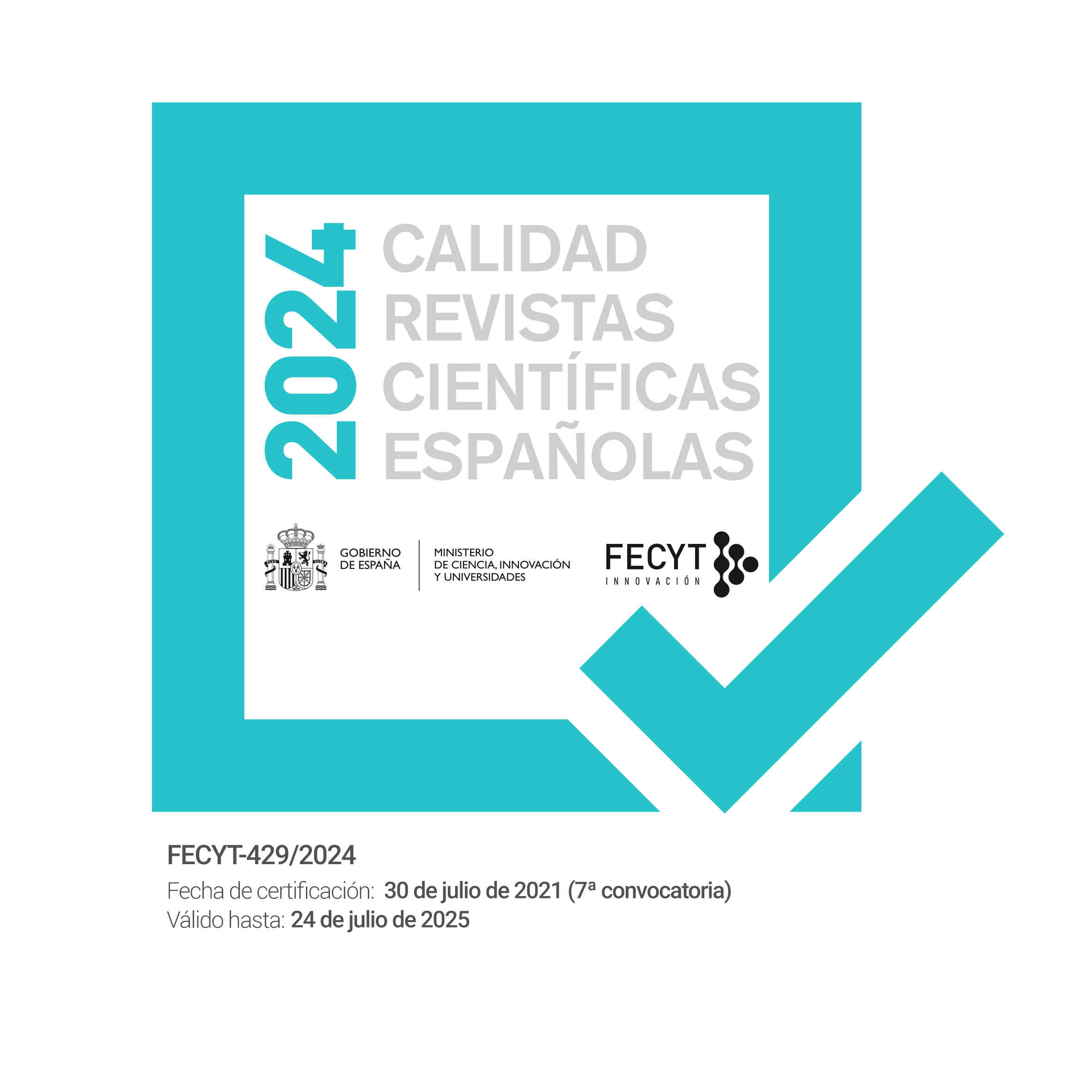Insights on Original Narrative Fiction in the Political of Diego de Saavedra, Fajardo, Andrés Mendo, and Francisco Garau
DOI:
https://doi.org/10.26754/ojs_arif/a.rif.201722474Resumen
This study explores the function of several types of narrative fiction utilized by three of the most distinguished political emblematists of the Hispanic Baroque: Diego Saavedra Fajardo, Andrés Mendo (who borrows liberally from the work of Solórzano Pereira) and the expressly anti-Machiavellian works of Francisco Garau. We consider the rationale behind choosing the emblem as a vehicle to express Counter-reformation political thought and we trace an evolution that leads to one of the books of Garau, which reveals itself to be a highly original work that propagates traditional rhetorical procedures and at the same time it conceals a radical skepticism affecting both the form and content of the work.
Keywords: Emblems, Spanish Political Literature, Golden Age Literature, Narrative Fiction
Descargas
Descargas
Publicado
Cómo citar
Número
Sección
Licencia
Los autores que publican en esta revista están de acuerdo con los siguientes términos: los autores conservan los derechos de autor y garantizan a la revista el derecho de ser la primera publicación del trabajo al igual que licenciado bajo una Creative Commons Reconocimiento-No Comercial-Sin Obra Derivada 4.0 (CC BY-NC-ND) que permite a otros compartir el trabajo con un reconocimiento de la autoría del trabajo y la publicación inicial en esta revista. Los autores pueden establecer por separado acuerdos adicionales para la distribución no exclusiva de la versión de la obra publicada en la revista (por ejemplo, situarlo en un repositorio institucional o publicarlo en un libro), con un reconocimiento de su publicación inicial en esta revista.






